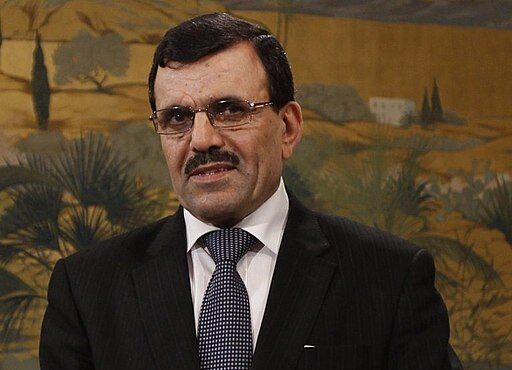Former PM Larayedh handed a 34-year sentence in a terror case, Ennahdha slams as pure political revenge.
Tunisia has thrown its former prime minister into prison for more than three decades, triggering uproar among opposition groups and rights activists who call the case nothing short of political vengeance.
Ali Larayedh, a senior figure in the Islamist opposition party Ennahdha and head of government from 2013 to 2014, was handed a staggering 34-year jail term on Friday. The charges? Accusations that he enabled Tunisians to leave the country and join armed groups in Syria. But Larayedh vehemently denies any wrongdoing. “I was neither sympathetic, nor complicit, nor neutral, nor lenient towards violence, terrorism,” he told the judge.
His words, calm but cutting, echoed the outrage among his supporters. They claim this trial has little to do with justice—and everything to do with silencing political foes.
Embed from Getty ImagesThe ruling came as part of a wider sweep that saw eight people sentenced in the same case, with terms ranging from 18 to 36 years. The court, however, did not release the names of Larayedh’s co-defendants.
Larayedh’s conviction is only the latest hammer blow to Tunisia’s embattled opposition. Just days earlier, authorities arrested prominent lawyer and vocal critic of President Kais Saied, Ahmed Souab. He now joins a long list of government critics—politicians, journalists, and business figures—facing what many call bogus conspiracy charges.
The relentless wave of detentions has fuelled accusations that President Saied, who seized exceptional powers in 2021, is waging a systematic campaign to wipe out dissent. He suspended the elected parliament, began ruling by decree, and tightened control over the judiciary. Critics say Tunisia is slipping back into autocracy.
Ennahdha, once a dominant political force in the country born from the Arab Spring, has found itself the prime target. The party maintains that the terrorism allegations are fabricated and designed to break its resistance. “This is not justice,” one party official declared. “This is revenge disguised as law.”
Saied’s government insists otherwise. Officials claim the judiciary operates independently and that all defendants are being held accountable in accordance with the law.
But international rights groups aren’t buying it. They warn that Tunisia—once hailed as the Arab Spring’s only democratic success—is now watching its hard-won freedoms unravel. The jailing of Larayedh, they argue, marks a new low in a regime increasingly accused of authoritarianism.
Public outrage spilled onto the streets of Tunis this week. Protesters chanting “Saied go away, you are a dictator” and “The people want the fall of the regime” marched defiantly along Habib Bourguiba Avenue. The slogans—once aimed at former strongman Zine El Abidine Ben Ali—now target a new ruler, seen by many as a replica of the past.
Yet even as opposition voices grow louder, Saied’s supporters refuse to back down. They staged a counter-rally in the same location, shouting slogans like “No to foreign interference” and “The people want Saied again.”
The divide is deepening. What was once a hopeful model of democratic transition now looks like a state in crisis—its institutions co-opted, its political rivals jailed, and its people forced to choose between fear and defiance.
Ali Larayedh’s 34-year sentence may mark the end of his political career. But for Tunisia, it signals something even darker: the tightening grip of a government many now fear is using the law to crush its enemies.
